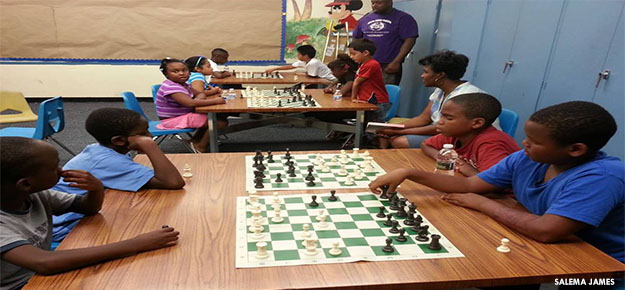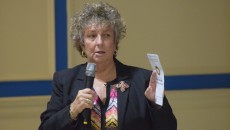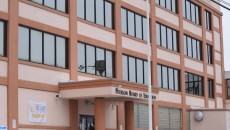Chess, a strategy board game involving two players, might be implemented into Paterson Public Schools’ curriculum if a new policy is adopted by the Board of Education.
The board game checkered with 64 square boxes and played by highly intelligent folks is part of the Infusion of Critical Thinking Skills into the Curricula policy. The policy states “the Board endorses the use of programs and approaches, including the game of chess and other higher level strategies that infuse critical and strategic thinking skills, intellectual creativity and problem solving skills into the classroom instructions and learning throughout the District.” Chess a cheaper alternative to computer games will help students improve thinking abilities and math skills.
Salema James, head coach at School 6 and a chess instructor, says, “It teaches our children the importance of planning and strategizing.” James founder of the Silk City Royals, a chess team in Paterson, teaches children how to play chess at the Danforth Memorial Library located on Broadway. She says most of her chess players are from School 6, so expanding it into other schools would allow her to have more of a variety of players.
At Wednesday’s board meeting James proposed a two part chess initiative. The first part of her program is to start chess programs in two Paterson schools. “Paterson has 6 main schools they [school board] focus on; I would like to start my chess initiative in at least two of these schools.” She hopes that the two schools will teach students chess “2 to 3 times a day focusing on chess history, ideology, and connection between chess in school, work, and everyday life.” James aims to accomplish this within one to two years, then moving on to part two of her plan. Part two would be an expansion of the program to all 6 schools, and also to teach teachers how to play chess, said James.
“Chess also helps overall with mathematical equations, and critical thinking,” said James.
Many studies have proven that chess does indeed improve math test scores, and thinking abilities. A study conducted by Berkeley Policy Associates took third graders and tested them on standardized math tests. Students who attended chess once a week of the 20 week chess program were found to have higher scores than those who did not. The study used public school students who were part of the Berkeley Chess School, Oakland Chess outreach program, a program that advocates chess in schools to improve learning.
The policy if passed makes it mandatory to have chess available as an in school or after school option. “It shall be the policy of the district to make chess available at least, as an after-school club or lunchtime activity, depending on student interest and staff availability at each school, beginning with second grade students.” It goes on to say, “Chess is additionally encouraged as a classroom instructional supplement, depending upon staff expertise and staff availability.” The game would become a skill teachers would have to learn and improve on.
“I think it has a great deal of merit particularly amongst early grades,” said Jonathan Hodges, a board member. “The children are addicted to computer games, I think this is another way to channel the thinking processes.”



